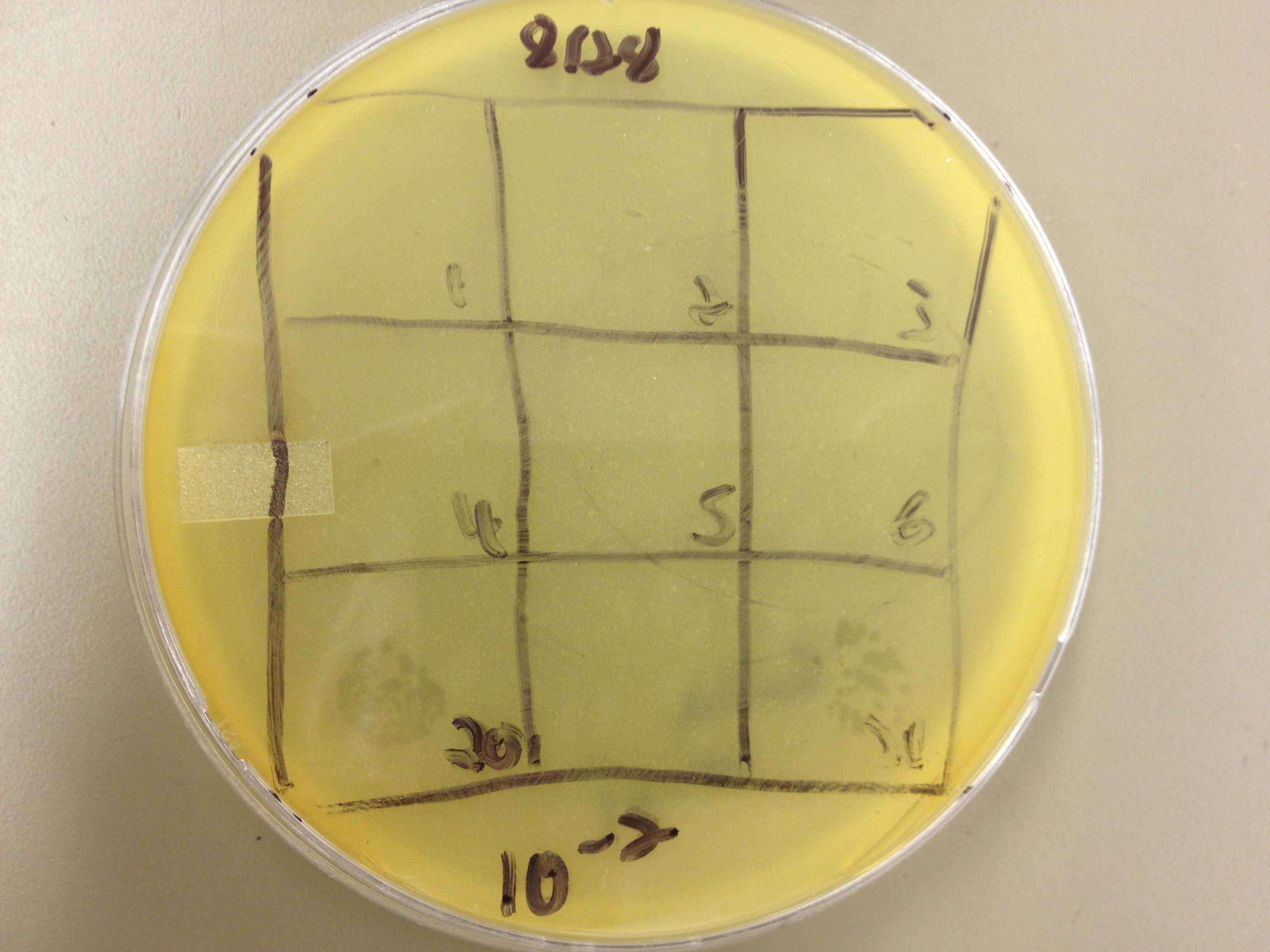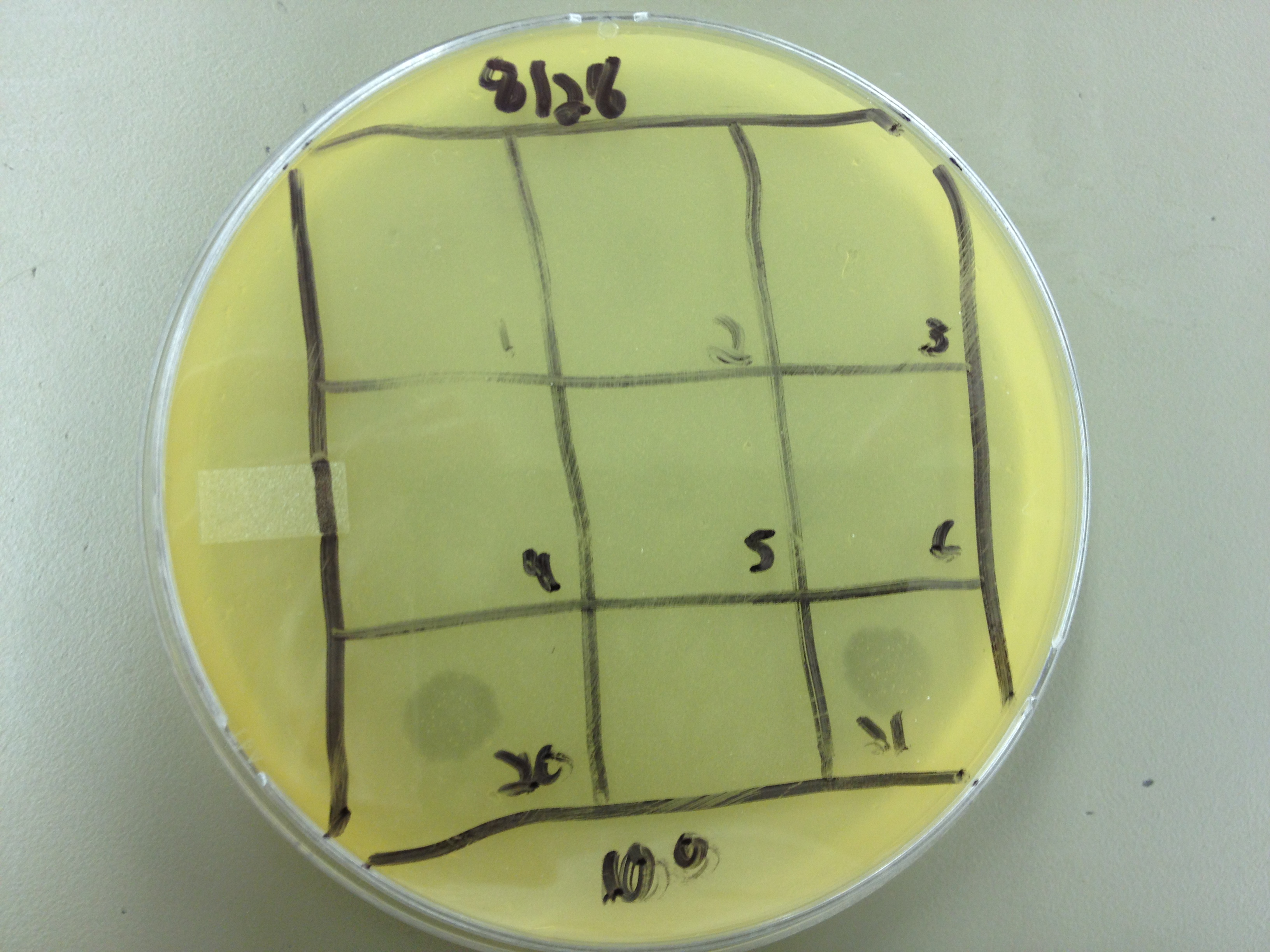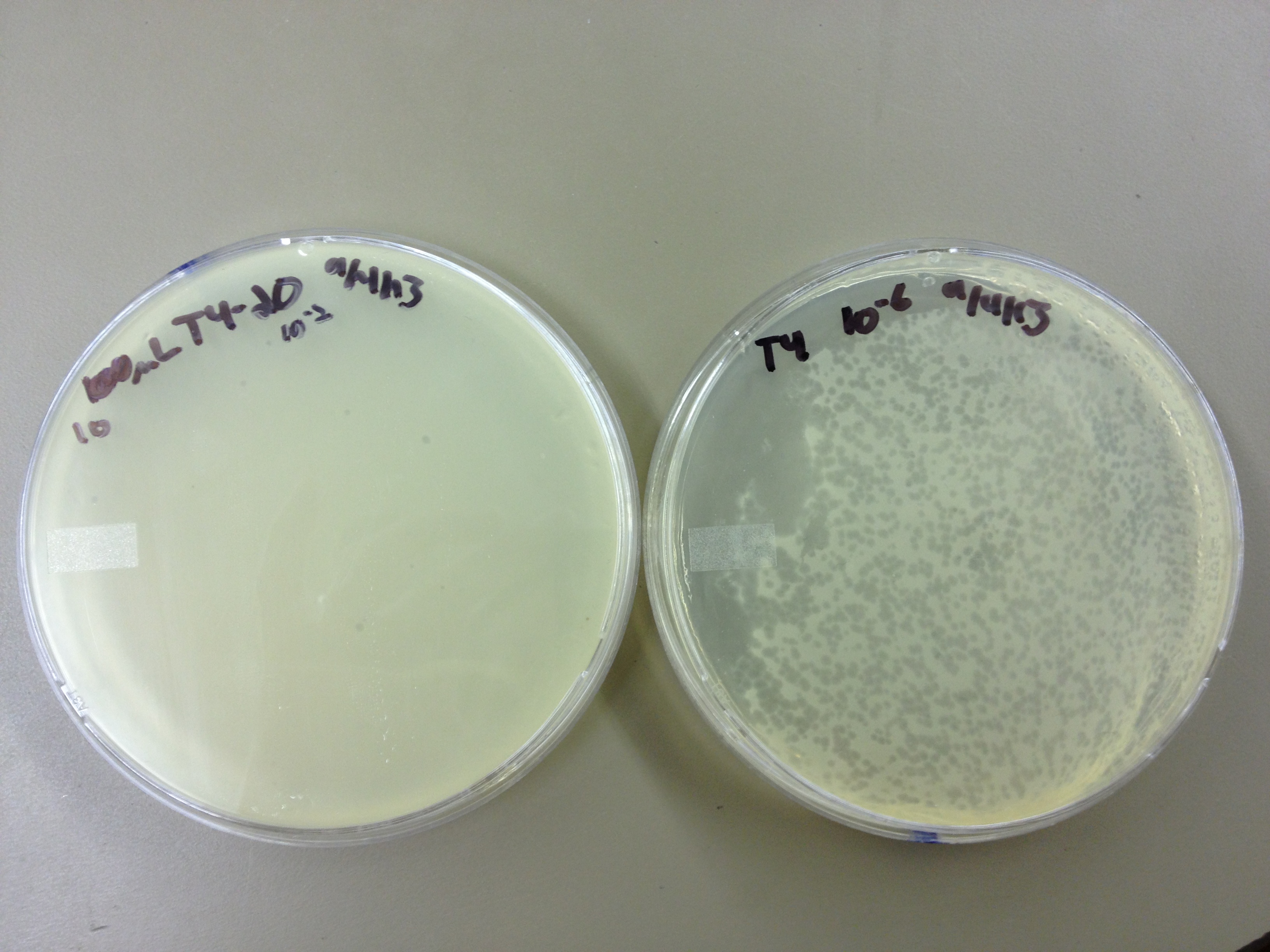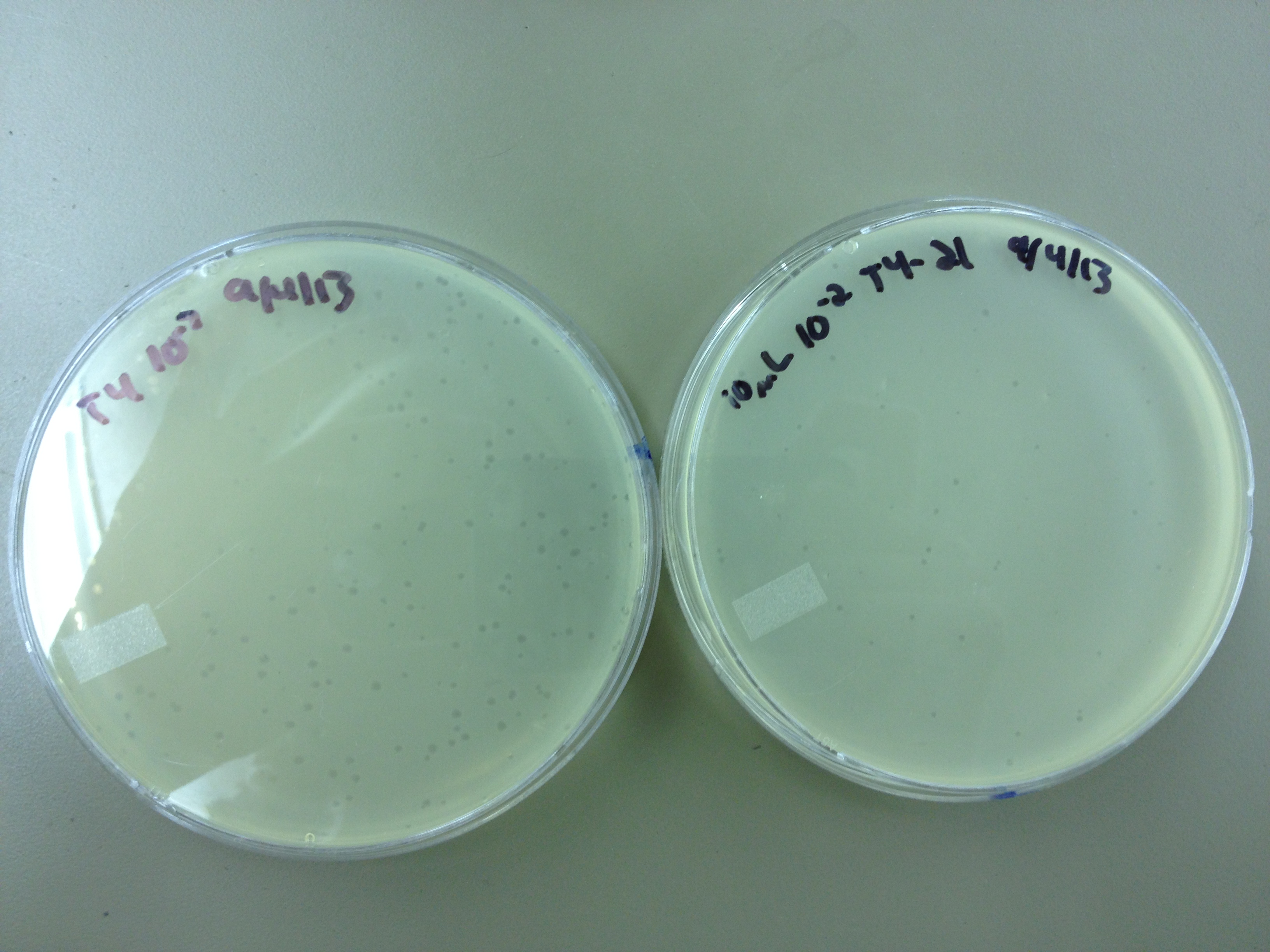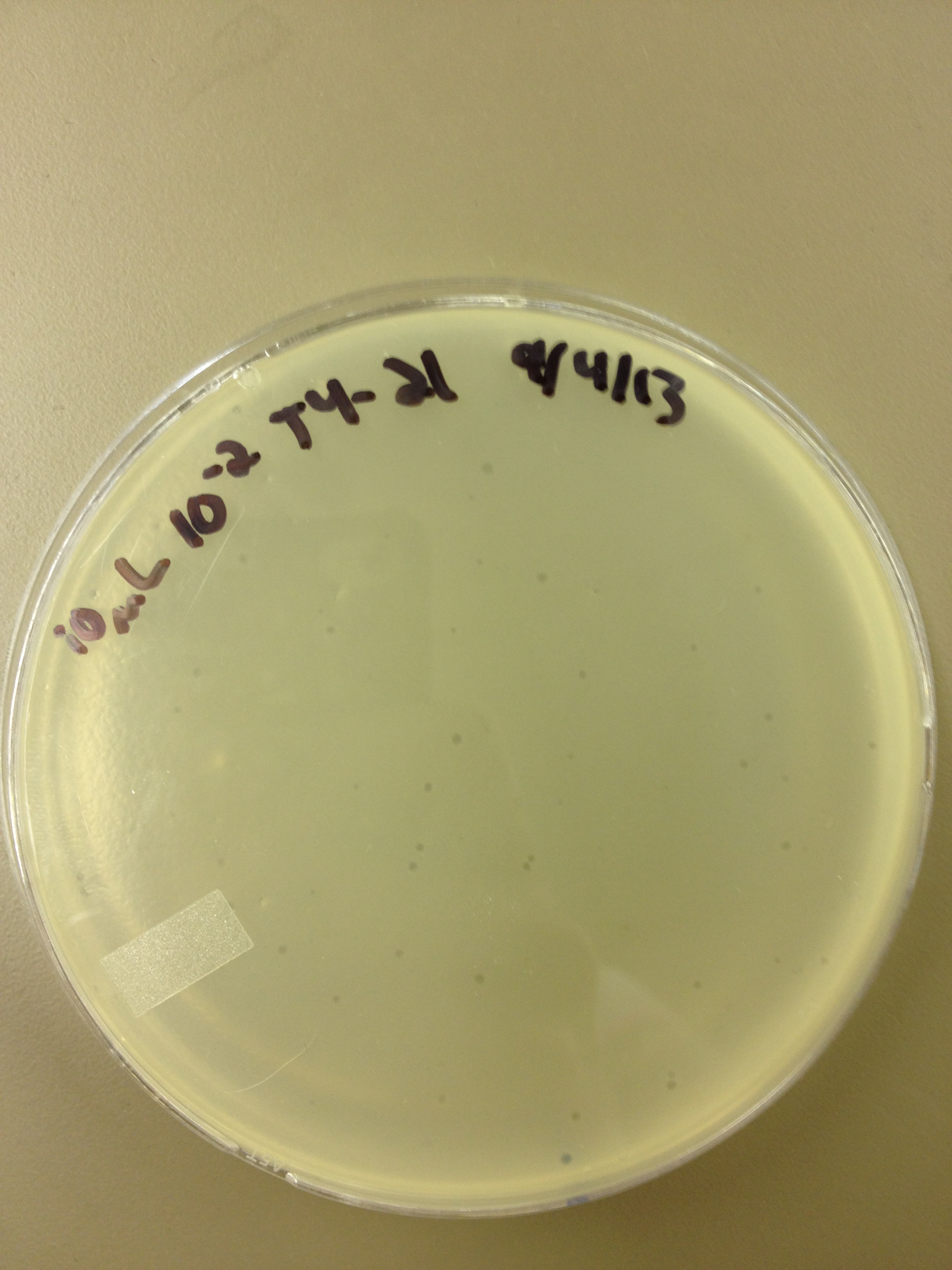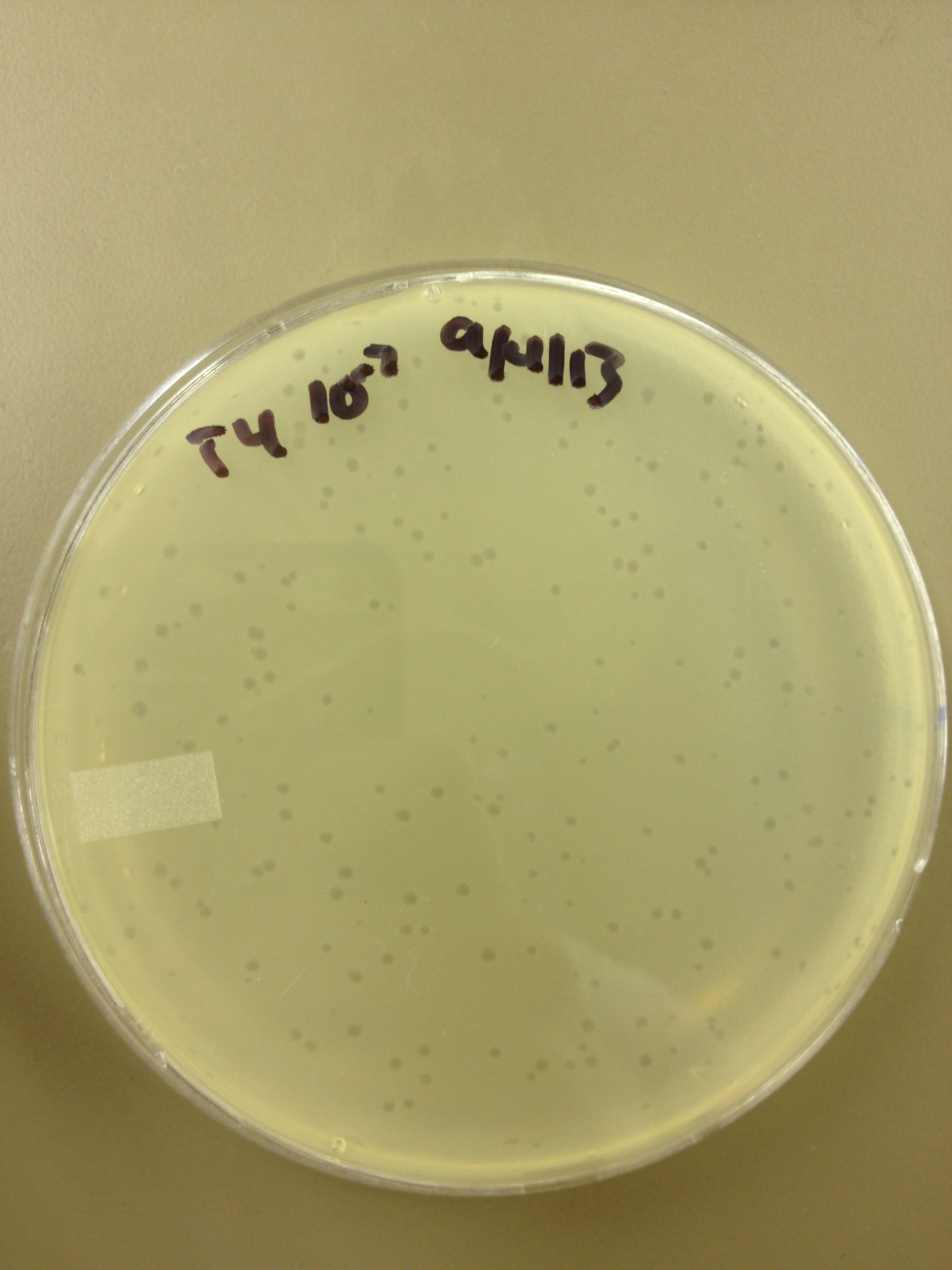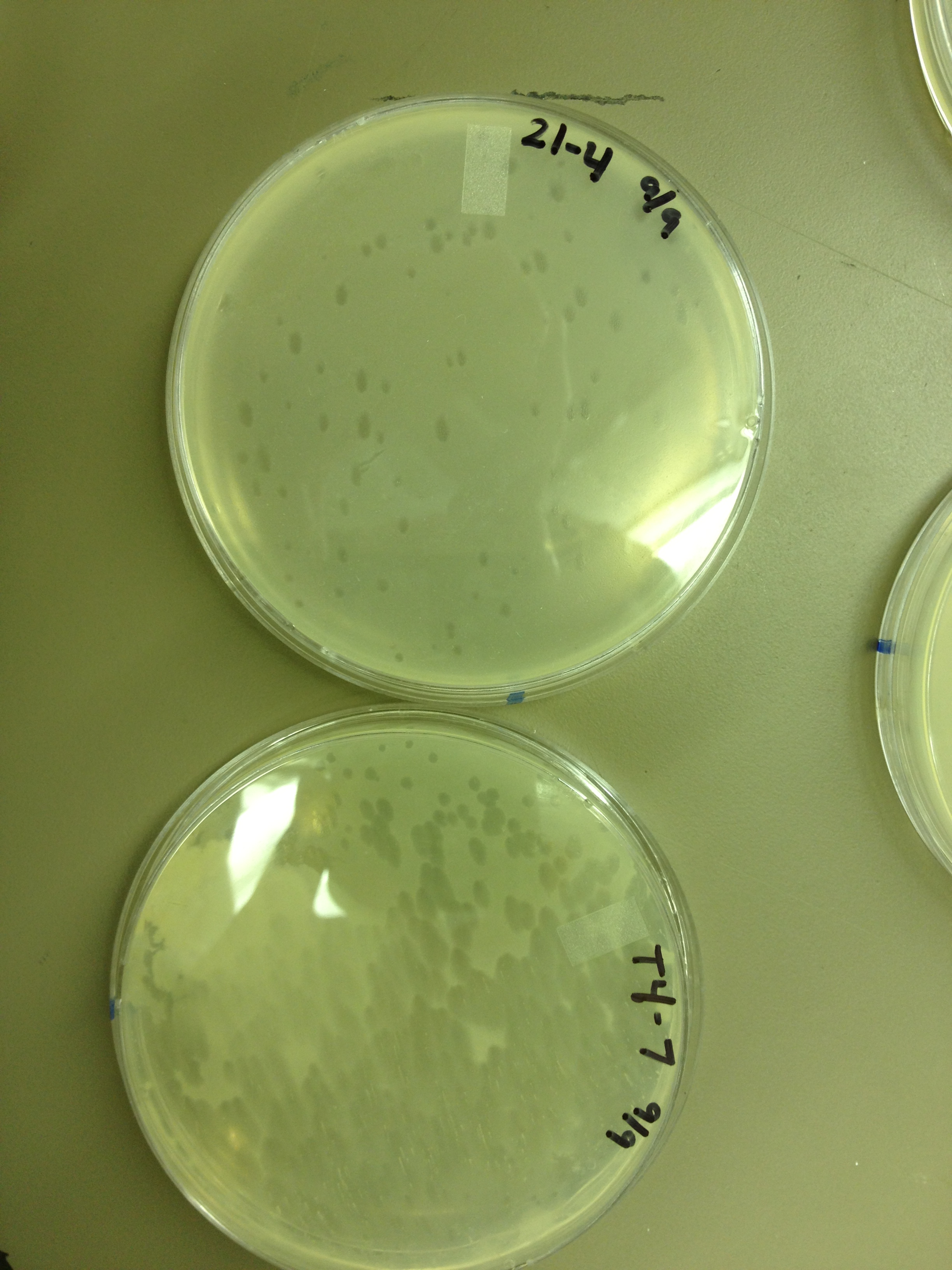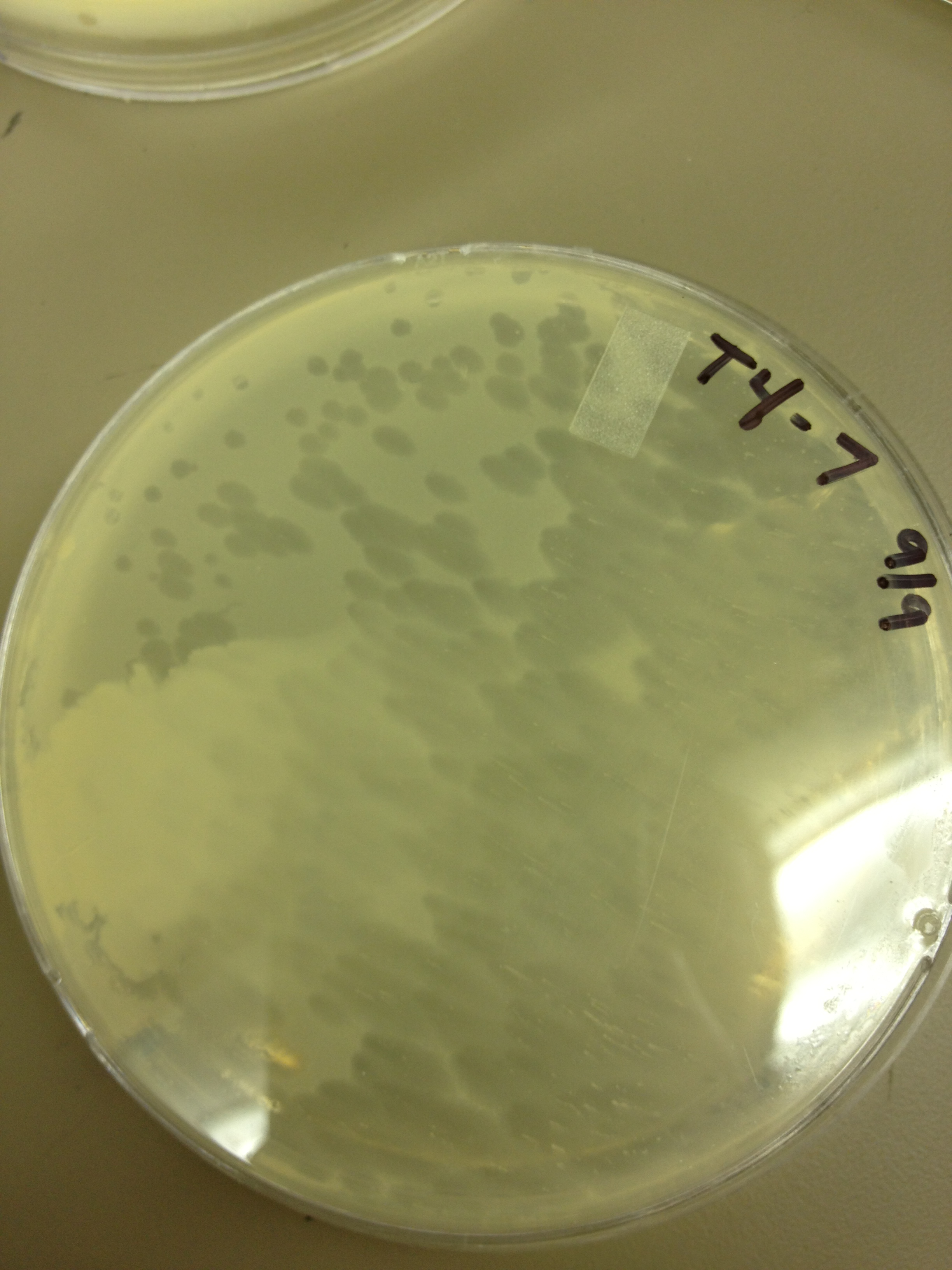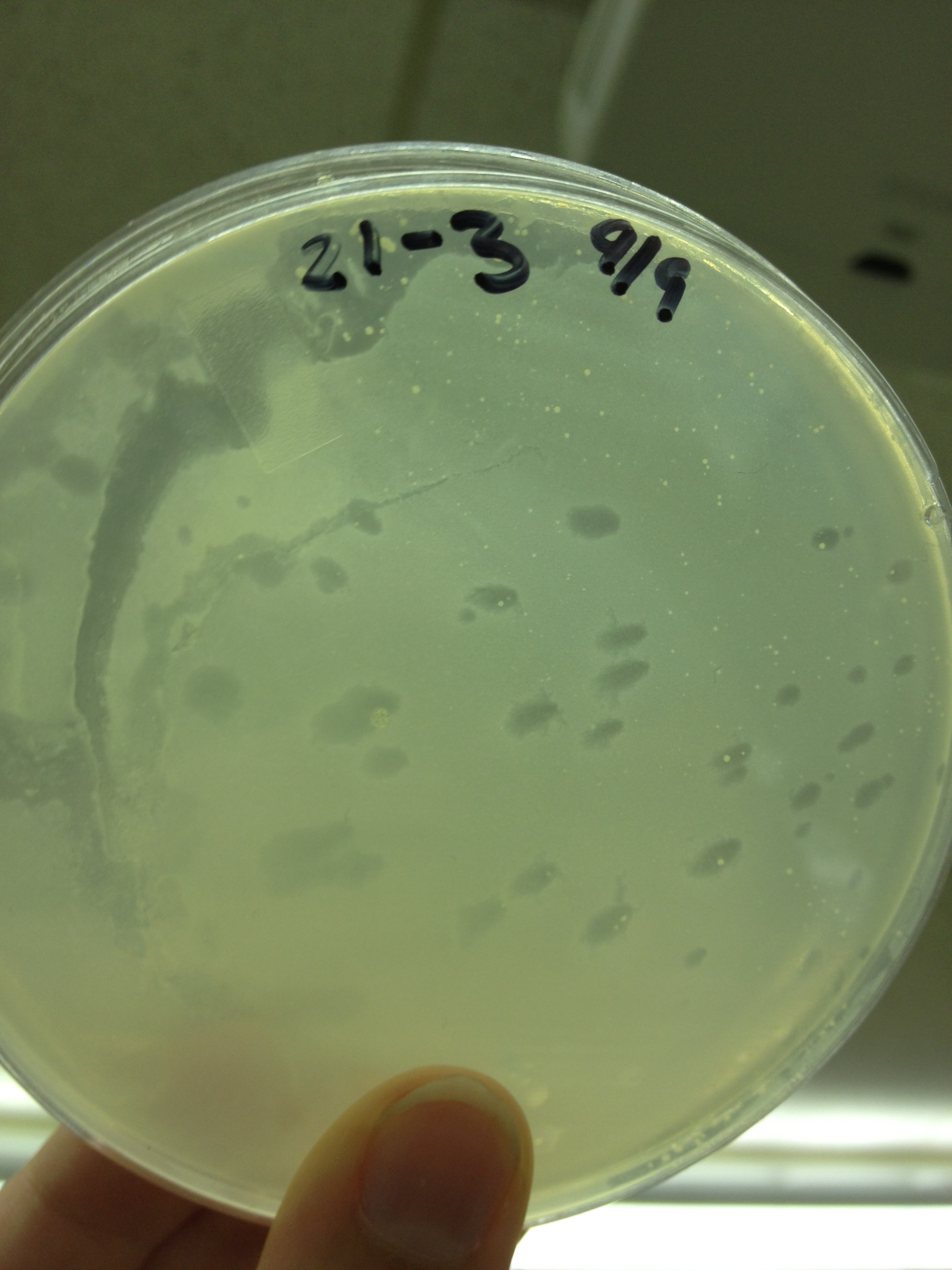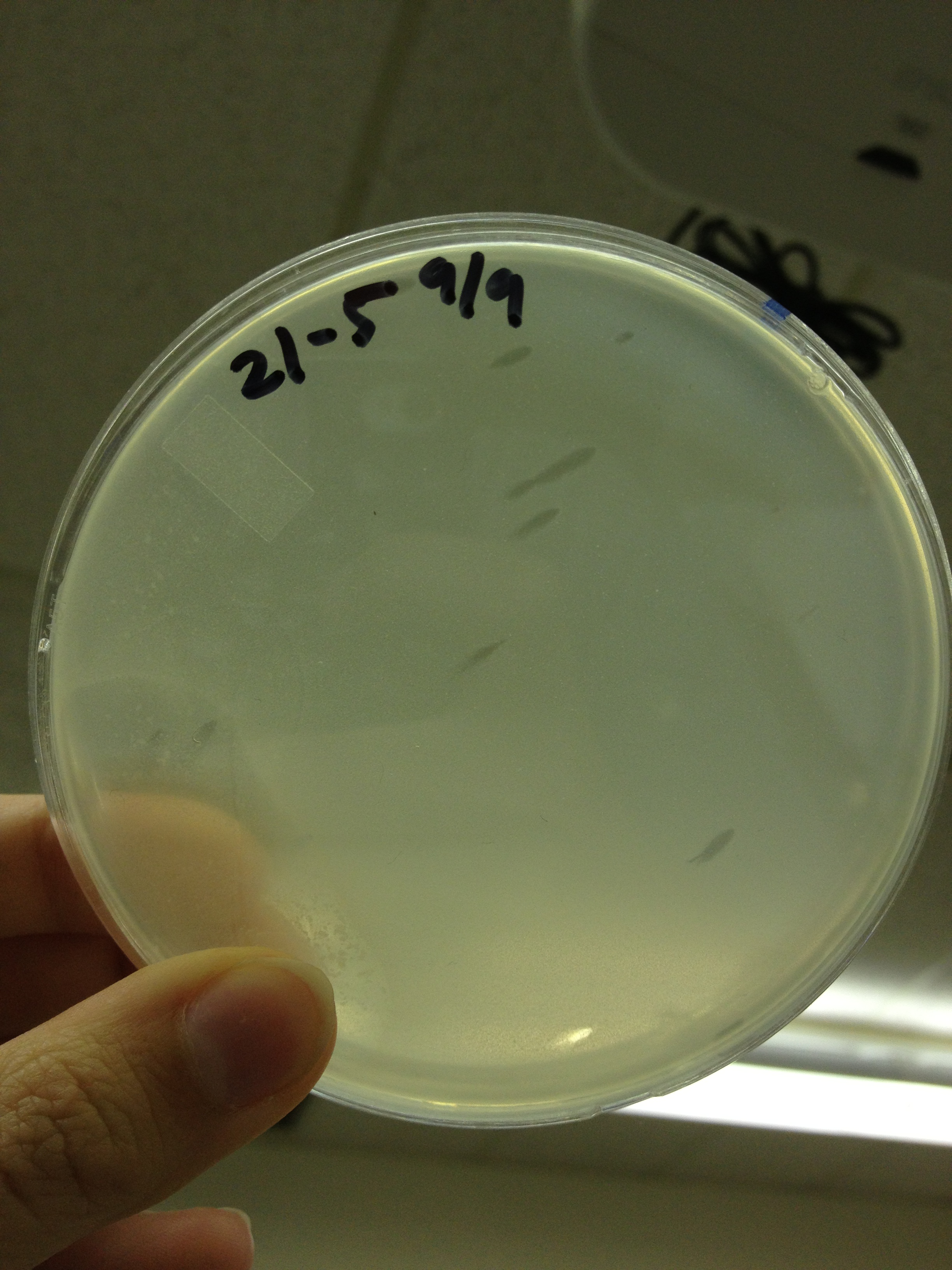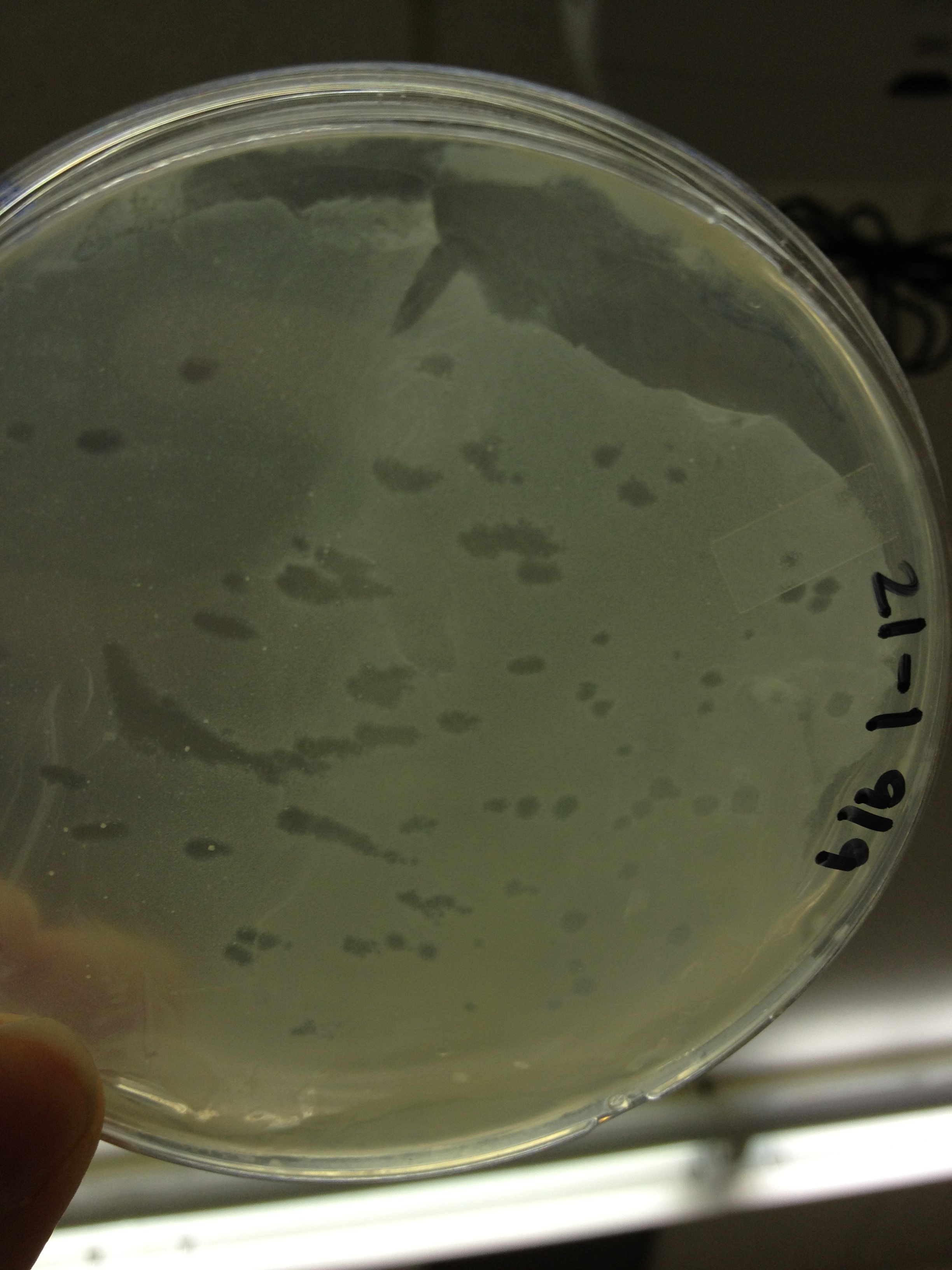Team:BYU Provo/Notebook/LargePhage/Summerexp/Period1/Dailylog
From 2013.igem.org
(→9/9/13) |
Brymerr921 (Talk | contribs) |
||
| Line 36: | Line 36: | ||
===9/13/13=== | ===9/13/13=== | ||
| - | + | We picked plaques and put them in eppendorf tubes numbered: | |
| + | #1: T4 control phage | ||
| + | #2: 2 on 20-7 | ||
| + | #3: 3 on 20-7 | ||
| + | #4: 4 on 20-7 | ||
| + | #5: | ||
{{TeamBYUProvoFooter}} | {{TeamBYUProvoFooter}} | ||
Revision as of 16:22, 13 September 2013
Contents |
September
9/4/13
Results from 8/28/13: Fractions 20 and 21 produced clearage on 10^0, and many small plaques at 10^-2. #4 had one plaque on 10^-2, and #1 had one plaque on 10^0.
Today we infected 0.5 mL of E. coli with: 100 uL of #1 10^0, 100 uL of #4 10^0, 10 uL of #20 10^-2, 10 uL of #21 10^-2, and for controls we did 10 uL of T4 wild type 10^-6 and 1 uL of T4 10^-7. We also plated a lawn of E. coli as a control.
9/6/13
In general, the plaques for the mutagenized phage seem to be smaller than the pre-mutagenized phage. From this it would appear that we have large phage! But, it's important to make sure that we have a stable phage, so from here we will be picking the small plaques from the mutant plate and plating them out so we can observe if there is a steady result of small plaques. BDM,KW
9/9/13
Today we picked plaques from phages found in the 20 and 21 fractions of the Cesium Chloride gradient that had the smallest plaques. We plated them out with .075 agarose in hopes that the plaques would be bigger on the whole, so differences would be more easily seen.
The results were somewhat disappointing, it appeared that each plaques was smeared either because we allowed the phage to infect e.coli too long before we plated them, because the concentration was not high enough for the agarose to solidify, or a combination of the two.
9/11/13
9/13/13
We picked plaques and put them in eppendorf tubes numbered:
- 1: T4 control phage
- 2: 2 on 20-7
- 3: 3 on 20-7
- 4: 4 on 20-7
- 5:
 "
"
